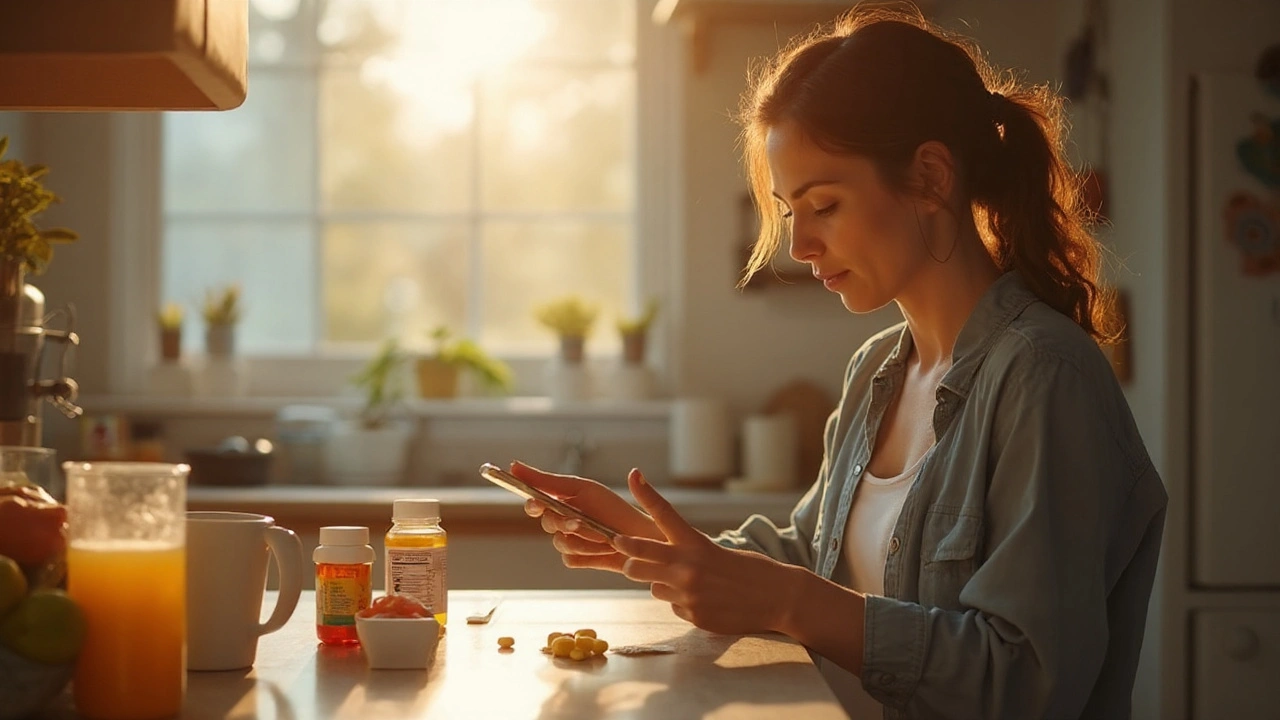Grapefruit Juice Interaction – What You Need to Know
If you love a morning glass of grapefruit juice, you might be surprised to hear it can mess with some medicines. This isn’t a myth – the fruit contains chemicals that can change how your body processes certain drugs. Knowing the basics helps you avoid nasty side effects without giving up the taste.
Why Grapefruit Juice Matters
The trouble comes from a group of compounds called furanocoumarins. When you drink grapefruit juice, these compounds block an enzyme in your liver called CYP3A4. That enzyme usually breaks down many medications. If it’s blocked, the drug stays in your system longer and can reach higher levels than expected.
Higher drug levels can mean stronger effects, but also more side effects. For example, some cholesterol pills, blood pressure meds, and anti‑anxiety drugs become too strong when paired with grapefruit. You might feel dizzy, have a rapid heartbeat, or get a rash – all signs that the drug is doing more than it should.
Common Medicines Affected
Not every prescription is risky, but a surprisingly long list is. Here are a few you might recognize:
- Statins like simvastatin and atorvastatin – higher risk of muscle pain.
- Blood pressure drugs such as felodipine – can cause low blood pressure.
- Anti‑anxiety meds like buspirone – may lead to extreme sedation.
- Immunosuppressants like cyclosporine – can increase kidney problems.
If you’re not sure whether your prescription is on the list, a quick search or a chat with your pharmacist will clear it up.
Even some over‑the‑counter products, like certain antihistamines, can be affected. The safest move is to treat grapefruit juice like any other strong food interaction – check first.
When you find a medication that interacts, you have options. Your doctor might switch you to a different drug that doesn’t rely on the CYP3A4 enzyme. Or they could adjust the dose so the grapefruit won’t push the levels too high.
Sometimes the simplest solution is to skip grapefruit for a few days while you’re on the medication. The enzyme recovers after about a week without grapefruit, so you can enjoy the fruit again later.
Remember, it’s not just grapefruit. Other citrus fruits like Seville oranges, pomelos, and even some tangelos contain similar compounds. If a recipe calls for those, treat them the same way.
To keep things easy, here’s a quick checklist you can use each time you get a new prescription:
- Ask your pharmacist if the drug interacts with grapefruit.
- Check the medication label or patient leaflet for food warnings.
- If you love grapefruit, let your doctor know – they can pick a safer alternative.
- Write a note in your phone or on your pill bottle reminding you to avoid grapefruit.
Taking these steps takes seconds but can prevent hours of discomfort or a doctor's visit.
In short, grapefruit juice is tasty but can be a hidden danger when mixed with certain meds. By knowing the why, recognizing the common culprits, and checking with a professional, you can stay safe while still enjoying your favorite drinks.

Why Drug Interactions Matter: A Simple 2025 Guide to Medication Safety
Drug interactions can turn helpful meds risky. Get a clear, practical guide to spot, prevent, and handle interactions-OTCs and supplements included.
Read More